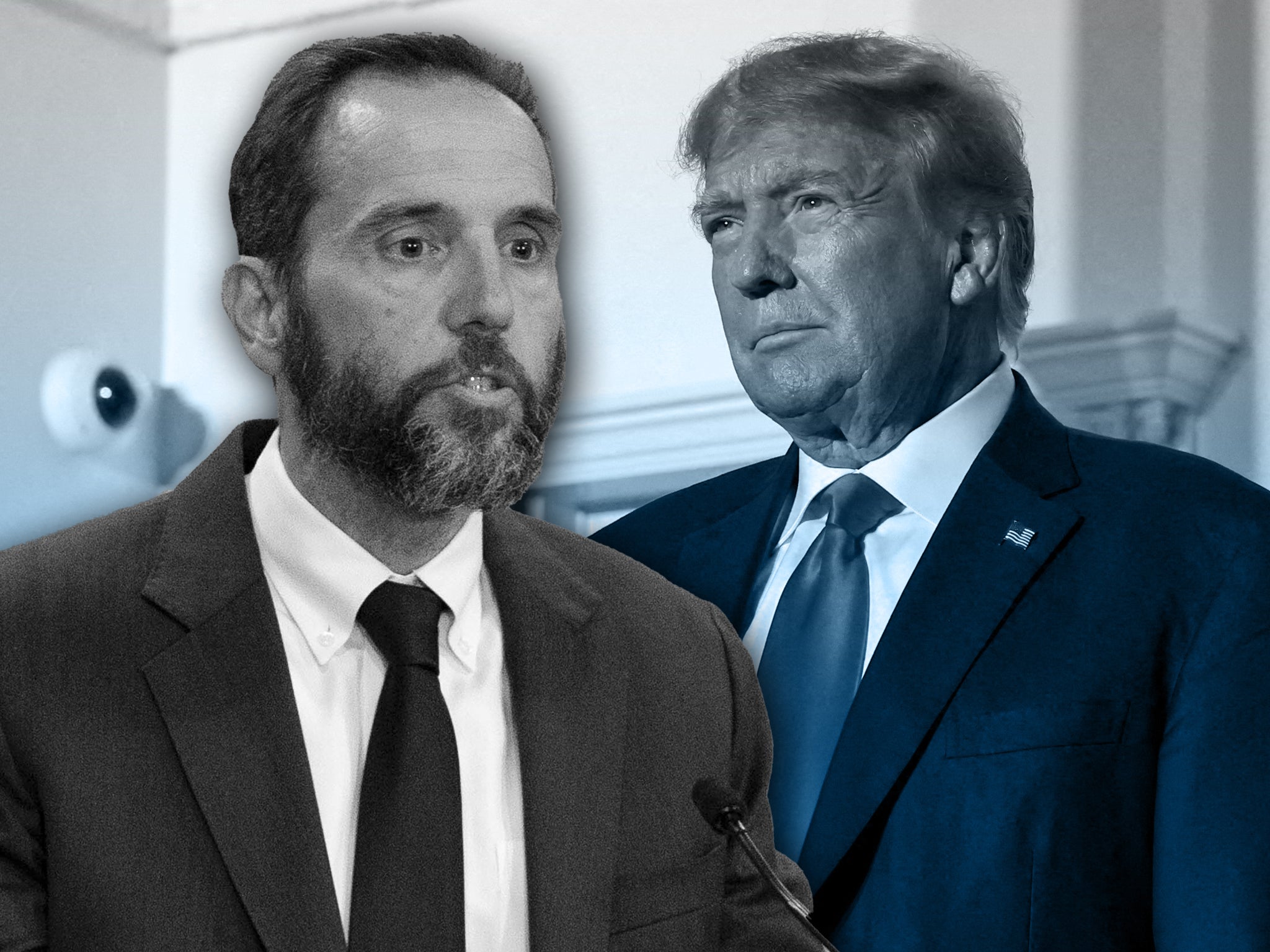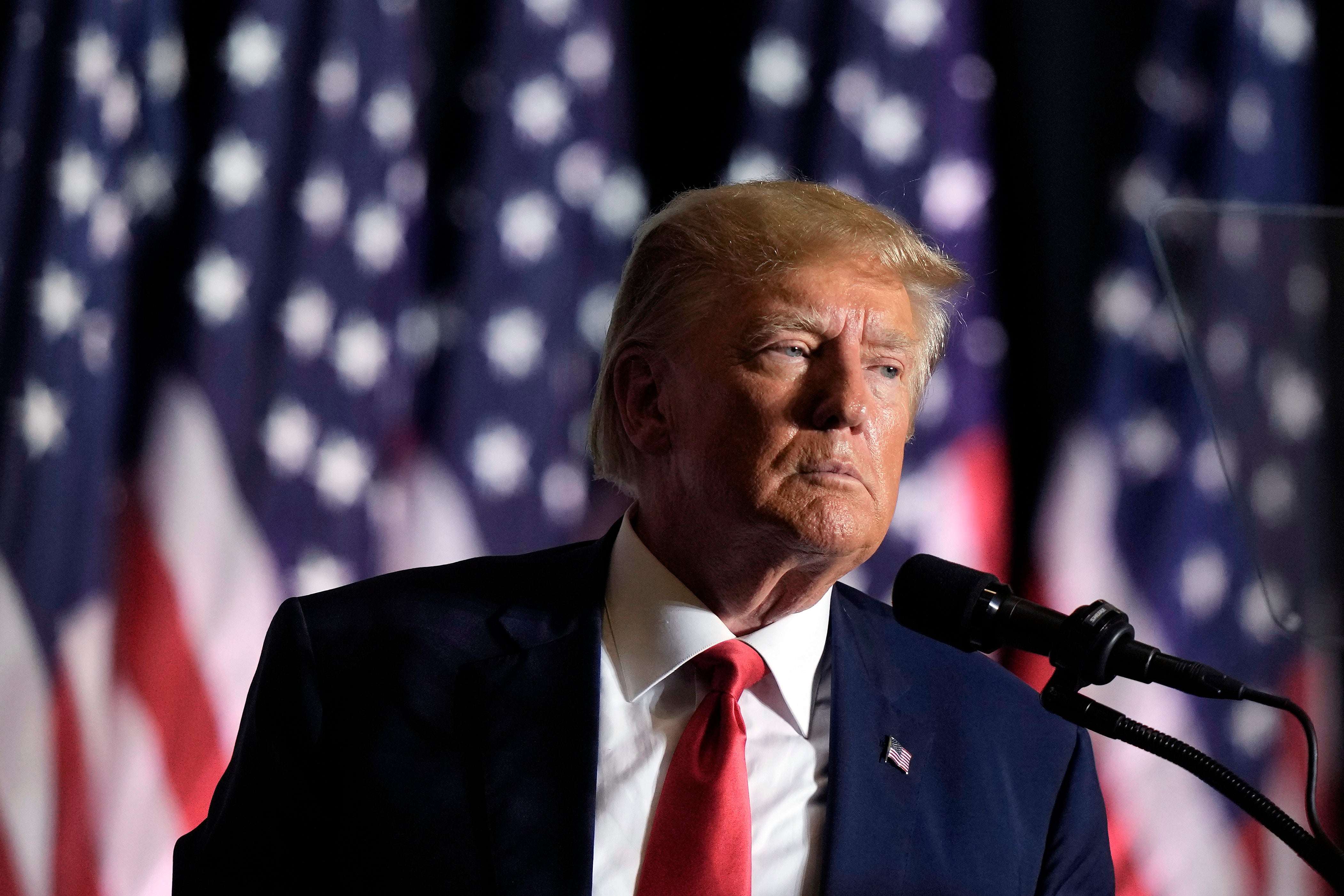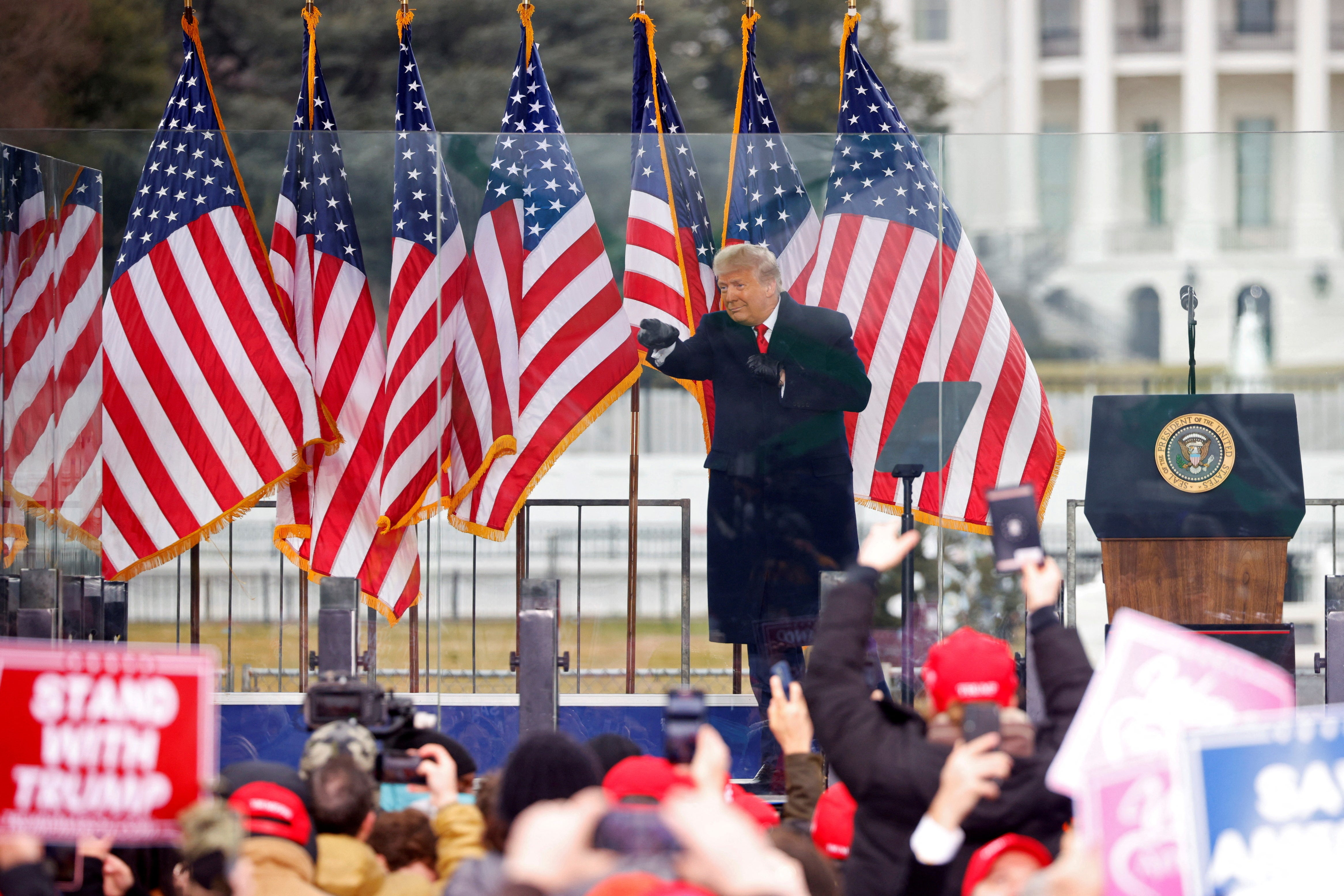Who is Jack Smith? The special prosecutor who could take down Trump
Department of Justice veteran has prosecuted corrupt politicians in the US and war crimes internationally. Now he is focused on the Republican and his inner circle, Andrew Feinberg writes


Your support helps us to tell the story
From reproductive rights to climate change to Big Tech, The Independent is on the ground when the story is developing. Whether it's investigating the financials of Elon Musk's pro-Trump PAC or producing our latest documentary, 'The A Word', which shines a light on the American women fighting for reproductive rights, we know how important it is to parse out the facts from the messaging.
At such a critical moment in US history, we need reporters on the ground. Your donation allows us to keep sending journalists to speak to both sides of the story.
The Independent is trusted by Americans across the entire political spectrum. And unlike many other quality news outlets, we choose not to lock Americans out of our reporting and analysis with paywalls. We believe quality journalism should be available to everyone, paid for by those who can afford it.
Your support makes all the difference.Jack Smith, the experienced war crimes prosecutor who has unveiled two unprecedented federal indictments against former US president Donald Trump, is no stranger to high-profile probes of public figures.
The US Department of Justice veteran oversaw anti-corruption prosecutions against multiple US politicians in his role as the head of the department’s public integrity section from 2010 to 2015.
One of those cases was against former Virginia governor Robert McDonnell, a Republican against whom he secured a conviction on bribery charges, though the case was later thrown out by the US Supreme Court.
He also won a conviction of former GOP representative Rick Renzi of Arizona, who received a sentence of three years in prison before being pardoned by Trump.
A Harvard Law School graduate, Smith also served in prosecutorial roles in US Attorney offices in the Middle District of Tennessee and the Eastern District of New York.
Prior to his appointment by US attorney general Merrick Garland, Smith lived in the Dutch city of The Hague, where he had been serving as a “specialist prosecutor” overseeing investigations into war crimes in Kosovo since 2018.
He also served as a coordinator of investigations for the prosecutor’s office at the International Criminal Court from 2008 to 2010, where he worked on cases against foreign government officials and members of militias accused of war crimes, crimes against humanity and genocide.
Smith returned to the US in November 2022 after being appointed as a special counsel by Garland.
His first mission was to consider, “whether any person or entity violated the law in connection with efforts to interfere with the lawful transfer of power following the 2020 presidential election or the certification of the electoral college vote held on or about January 6, 2021.”
The second, which led to Trump being indicted and arraigned on 37 federal charges, was about whether the former president had violated US laws prohibiting unlawful retention of national defense information and obstruction of justice.
It marked the first time in US history that an ex-president — let alone one who is a declared candidate in the next presidential election — faced criminal charges.

On June 13, 2023, Trump was arrested and arraigned on those charges in a federal court in Miami, where he pleaded not guilty. His longtime aide Walt Nauta was also charged in the case,
Coming face-to-face in the courtroom, several reporters described seeing Smith stare down the former president throughout the entirety of the arraignment proceedings.
On July 27, 2023, Smith hit Trump with fresh charges in the case over accusations that he tried to delete Mar-a-Lago security footage so it couldn’t be handed over to investigators probing his handling of secret documents.
According to prosecutors, Nauta and a new third defendant — Mar-a-Lago property manager Carlos De Oliveira — collaborated to hide the footage. Nauta and De Oliveira were also charged over the matter.
Trump was also hit with a new charge — his 32nd for retaining national defense information — in relation to a new classified document described as a top-secret “presentation concerning military activity in a foreign country.” This document is believed to be a plan of attack on Iran, which leaked audio previously revealed Trump discussing in a meeting with biographers and staffers at his Bedminster, New Jersey, golf club.
Trump was first expected to go to trial on May 20 in Florida, but that case has been bogged down for over a year in a seemingly endless parade of motions and hearings before US District Judge Aileen Cannon, the judge he named to the bench just weeks after losing the 2020 election.
Now, Judge Cannon is hearing arguments that could end with her dismissing the case on the grounds that Smith, who was appointed to his position by the attorney general, lacks the power to prosecute Trump because he wasn’t confirmed to his role by the Senate.
Such arguments have been tried before in the District of Columbia to challenge the appointment of a previous special counsel who investigated Trump, Robert Mueller, but the DC Circuit Court of Appeals rejected them.
Should Judge Cannon not follow that precedent, some legal experts have opined that an order dismissing the case on such dubious grounds could give Smith cause to ask for her removal.
But beyond the classified documents case, Smith also investigated Trump’s efforts to remain in office despite losing the 2020 election, including any role he may have had in inciting the insurrection on January 6, 2021, for which he was impeached but not convicted in the US Senate trial.
On July 18, 2023, the former president said he had received a letter stating that he was a target of a federal grand jury probe. The next month, a third indictment was brought against the ex-president.
A grand jury in Washington DC voted to charge Trump on four counts of conspiracy to defraud the United States, conspiracy to obstruct an official proceeding, conspiracy against rights and obstruction of, and attempt to obstruct, an official proceeding.
As he pursues charges against one of the most famous men in the world, Smith has been thrust into the spotlight.
Following his first federal indictment in June, Trump lashed out at Smith, accusing him of being a “Trump hater” and “a deranged ’psycho’ that shouldn’t be involved in any case having to do with ‘justice,’ other than to look at Biden as a criminal – which he is!”
Subsequently, Trump’s allies and supporters began attacking Smith, including Kimberly Guilfoyle, Matt Gaetz, Mark Levin and far-right Georgia congresswoman Marjorie Taylor Greene. Smith has also faced repeated attacks from Trump himself ever since that first federal indictment was handed down.
Smith has been unfaltering in his response.

Following Trump’s outbursts in his New York fraud trial that resulted in a gag order against him, Smith requested protections for jurors and prospective jurors ahead of the former president’s trial in his election subversion case.
In October, Smith also criticised Trump for trying to postpone his classified documents trial until after the 2024 election.
Smith pointed out that not only is Trump asking “the Court to continue the trial for an additional seven months” but that a delay had already been rejected by the court “less than three months ago.”
“The defendants provide no credible justification to postpone a trial that is still seven months away,” Smith wrote.
“They are fully informed about the charges and the theory of the Government’s case from a highly detailed superseding indictment and comprehensive, organized unclassified and classified discovery.”
In December, the US Supreme Court agreed to consider a presidential immunity plea from Trump, arguing that he should be protected from prosecution over his conduct as commander-in-chief, which prompted Smith to put in a request that the justices expedite the process. They duly agreed.
Smith’s team asked for them to determine “whether a former president is absolutely immune from federal prosecution for crimes committed while in office or is constitutionally protected from federal prosecution when he has been impeached but not convicted before the criminal proceedings begin.”
“The United States recognizes that this is an extraordinary request,” they wrote in the filing. “This is an extraordinary case.”
When Trump attacked his intervention as “authoritarian,” Smith retaliated by saying that the Republican’s claim “threatens to license presidents to commit crimes to remain in office,” hence the need for a decisive ruling.
It has since emerged that Smith’s family were targeted with a nuisance “swatting” at his Maryland home on Christmas Day, when a member of the public (presumably a Trump supporter) reported a false allegation to law enforcement in order to get them to descend on the Smith residence.
Gustaf Kilander, Ariana Baio, Kelly Rissman and Alex Woodward contributed to this report
Join our commenting forum
Join thought-provoking conversations, follow other Independent readers and see their replies
Comments